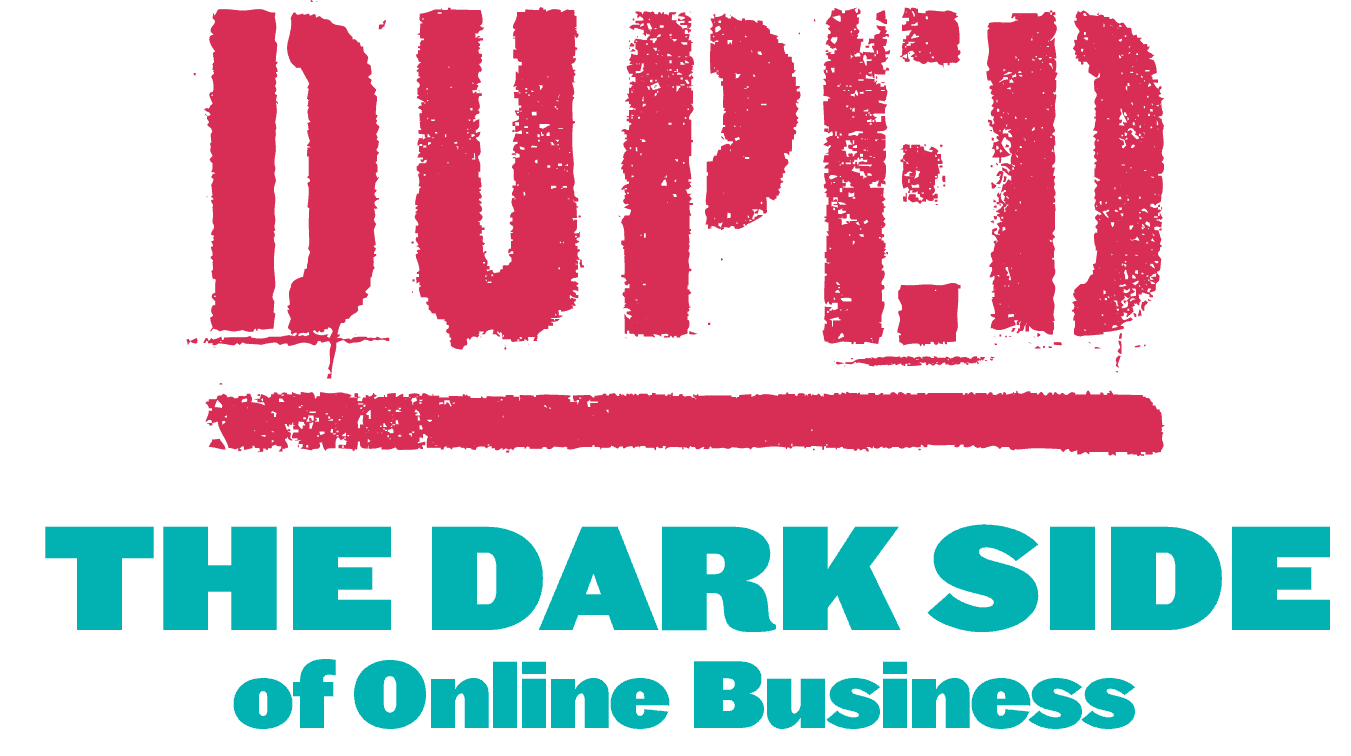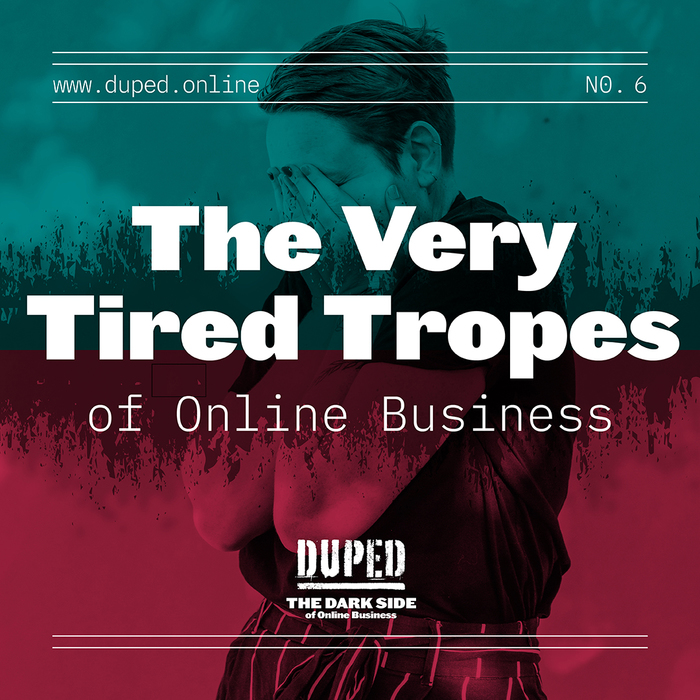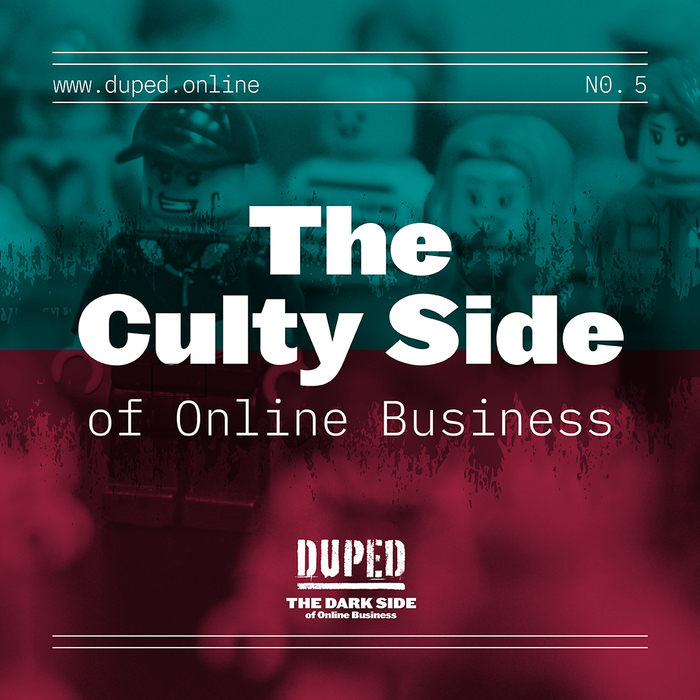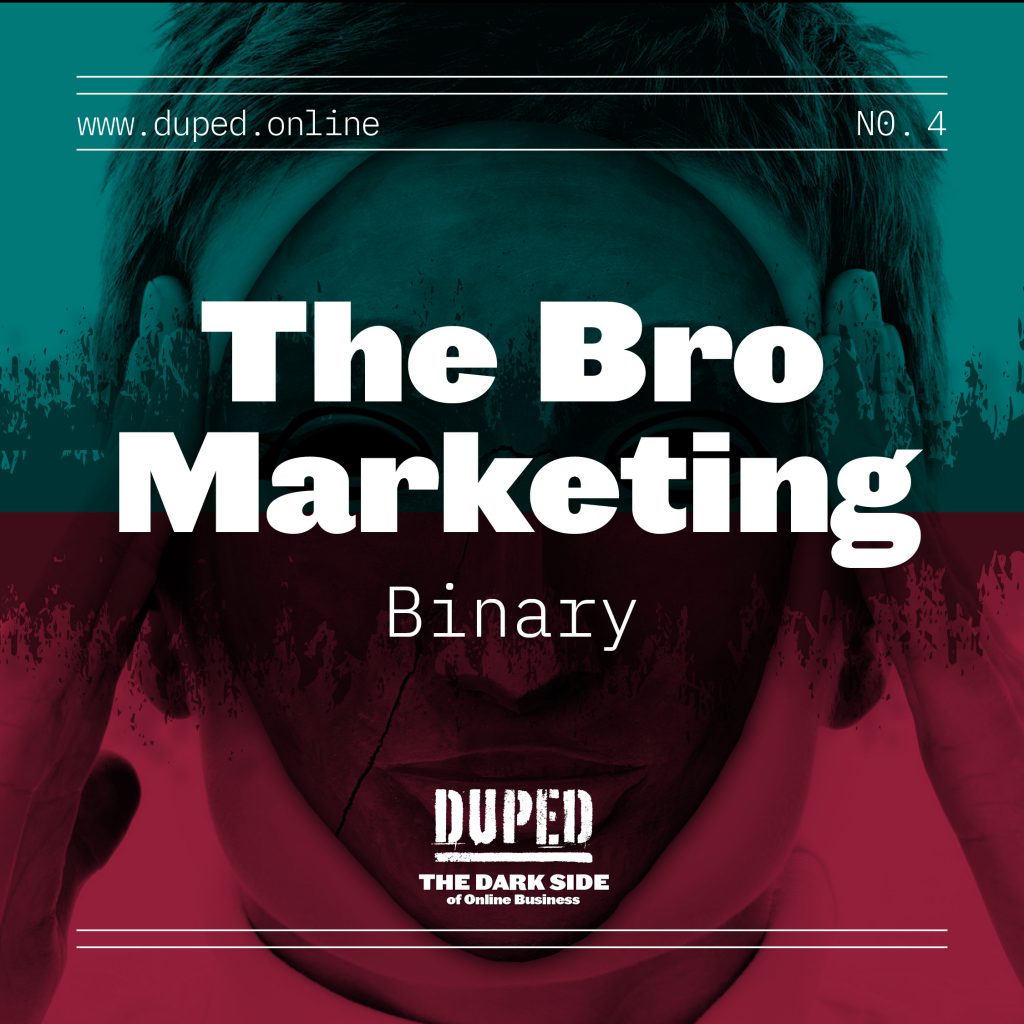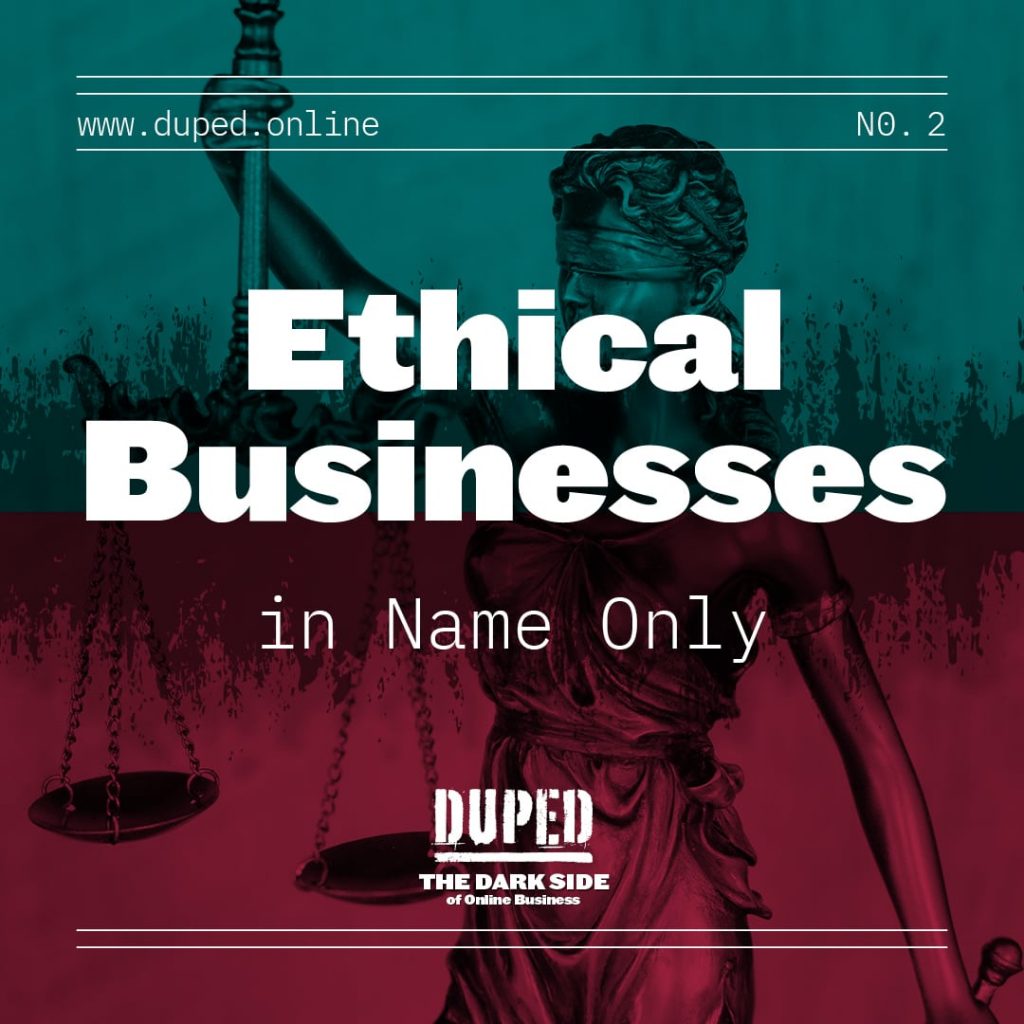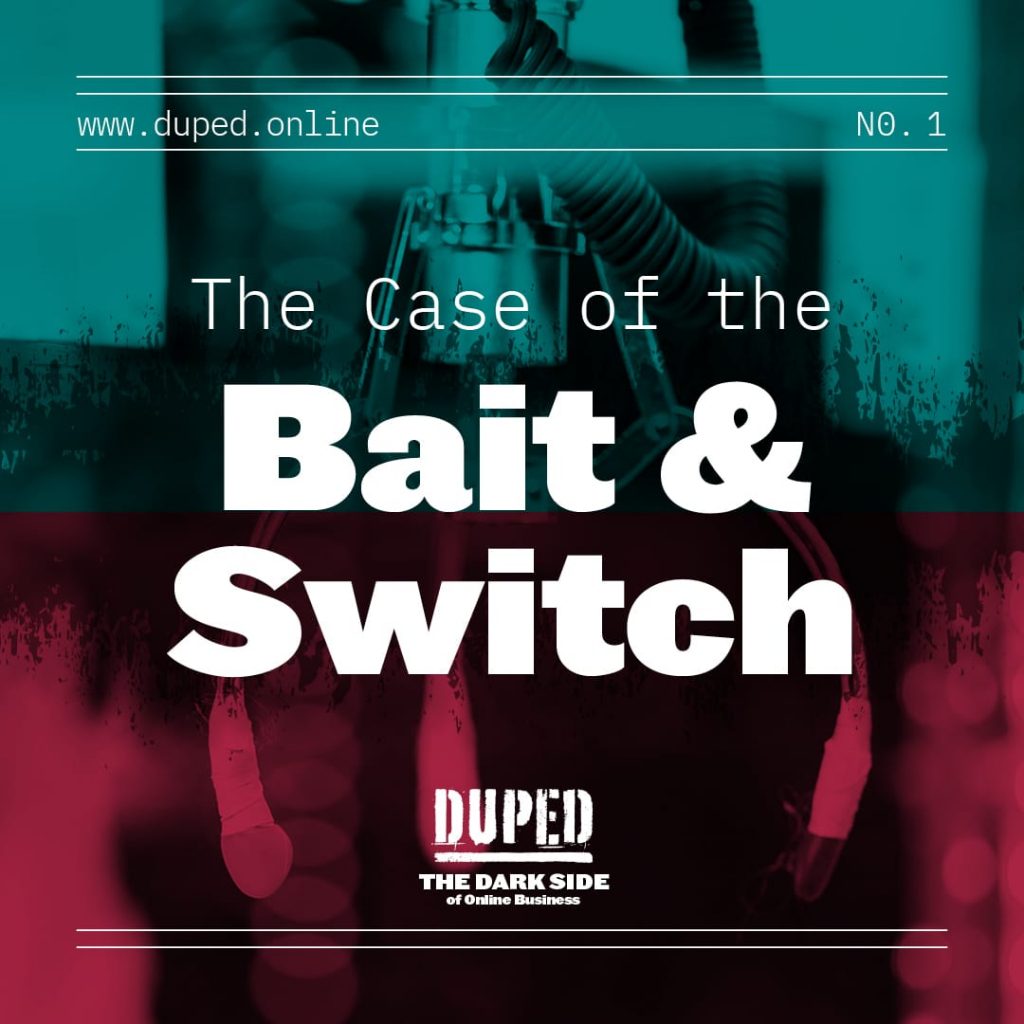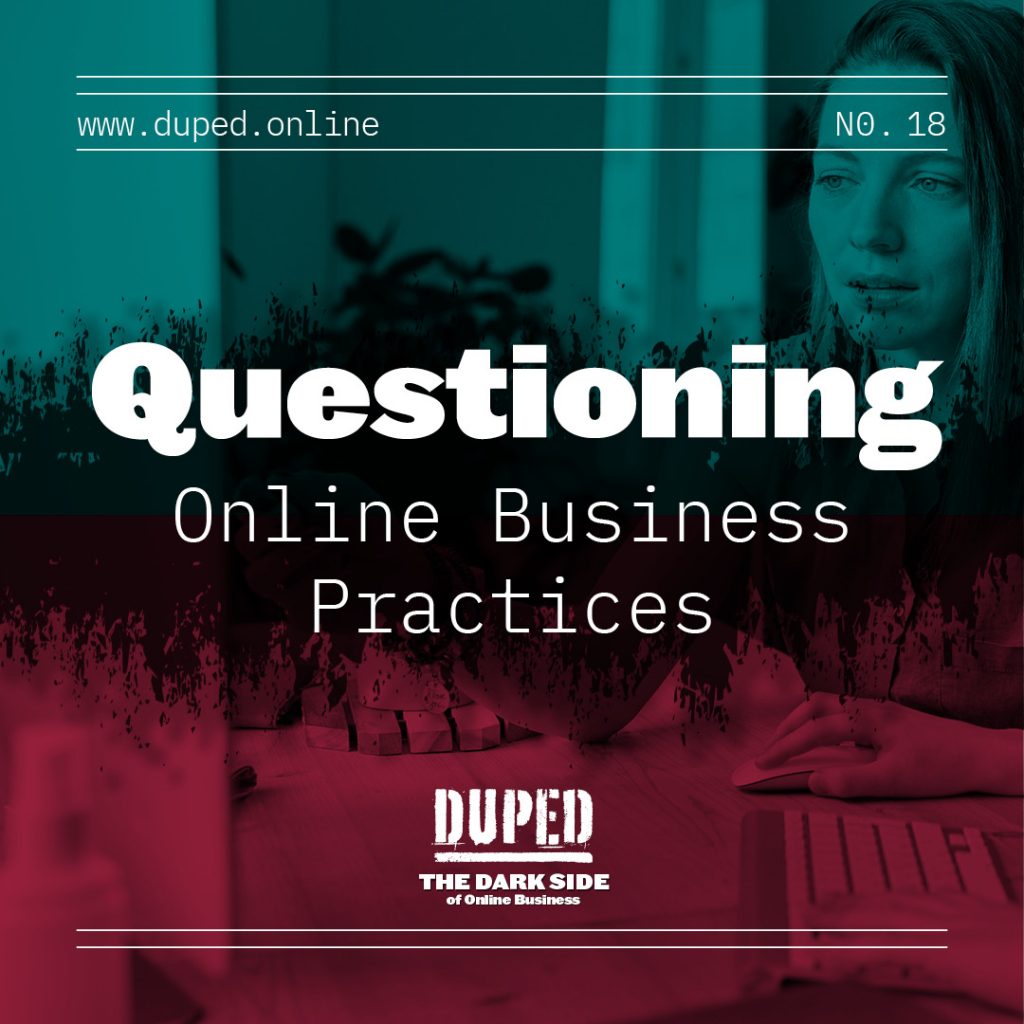
Questioning Online Business Practices
Welcome back to season 3 of Duped. This season we wanted to question HOW we conduct business online. There are some seriously shady business practices that occur in the online space every day.
What’s worse those practices get normalized and it becomes business as usual in the online space. It’s time to question those business “best” practices so let’s do this.

What are Best Practices?
ou might not be familiar with the term business best practices as it’s not something we talk about in the online space.
According to Investopedia, “Best practices are a set of guidelines, ethics, or ideas that represent the most efficient or prudent course of action in a given business situation.
Another way to think about this is how you do something in order to get to a business objective or to solve a problem in your business.
Industries establish what a best practice looks like – for example in online business if you have a course or program – the best practice is to launch – there are a ton of people who will tell you how to implement.
What’s the Problem with Following Online Business Practices?
In two words: SHADY SHIT.
The CBC did an investigative report on the business practices of life coaching and watching it – some of the things we consider perfectly normal business practices in the online space – the reporters highlighted
One that stood out to us was offering a discount if you decide on the phone to buy. The fast-action bonus or discount is a common business practice and when the coach was confronted with how it made her client feel – she seemed shocked and defensive that people would perceive the incentive this way.
Other examples of what gets modeled in the online space, Rachel Hollis normalizes plagiarism in a 2021 report in the Cut by Amanda Arnold documents Hollis penchant to take credit for other people’s words on her Instagram account. This type of plagiarism normalizes other people to do the same to a point where “rob and duplicate” becomes a best practice in the online space
The Guardian reported on Brooke Castillo and the Life Coaching school and one practice that she has employed has become mainstream certifications,
As Rachel Monore reported:
“In 1995, the nonprofit International Coaching Federation (ICF), an independent credentialing body, attempted to impose a set of standards and a code of ethics on the industry, and met with middling success. Although tens of thousands of coaches belong to the ICF, many more – including Castillo, who has dismissed the ICF as clubby and ineffective – do not. Instead, she opted to create her own certification program via the Life Coach School, which she founded with her husband, Chris, in 2007.”
This means she created a certification with no governing body overseeing – she just made it up.
These so-called practices are just the tip of the iceberg.
These shady practices like the ones highlighted in the media tend to get replicated in the online space.
We see celebrity entrepreneurs doing something and we think – well they are successful so this must be the way to do things.
And there’s a big reason why this happens which we’re doing to dive into next.
All or Nothing Thinking in Online Business
Celebrity entrepreneurs are always willing to sell you THEIR WAY to build a business. The marketing and sales promises highlight that if you just follow their cookie-cutter formula to success you’ll make all the money you could ever want.
If you don’t follow their formula to a T – then your business will always and forever be a mess.
This business success or failure thinking…well that’s a prime example of all or nothing thinking
All or nothing thinking is a cognitive distortion. According to Toni Bernhard in Psychology today “When you engage in all or nothing thinking, you evaluate your life in extreme terms: It’s either perfect or a disaster. You’re either a total success or a total failure. This is distorted thinking because life is a mixed bag for all of us.”
According to Dr. Katharina Star in an article on verywellmind.com, she argues “This type of faulty thinking can also include an inability to see the alternatives in a situation or solutions to a problem.”
This type of thinking is encouraged in the online business world especially when it comes to HOW to run your business.
Despite What the Web Celebs Tell Us – There are Many Ways to Build Your Business
This is why this season we wanted to deep dive into online business not-so-best practices
Here’s what you can expect to hear about
- Pricing – the overton window has moved
- Chasing celebrity entrepreneurship as a completely normal business practice
- Hiring
- Certifications
- Launches
- Group programs
We’ll be deep-diving into each of these business practices this season of Duped in detail. We’ve got lots to share and are ready to spill the beans on all of it.
What We Want You to Know About Online Business Best Practices
- Business best practices differ from business to business – there’s not just one way or one solution to achieve your business goals.
- How you know what works best for your business is dependent on who your client is – B2E practices vs B2B.
- What works best is also dependent on the type of business you own – for example, coaching is very different from providing a service.
- Don’t fall into the trap of all or nothing thinking – if someone is offering you the step-by-step solution that works for all kinds of business – slow down and look at their business and what they’re selling.
Finally, question best practices. In his book Think Again, Adam Grant talks about how best practices should be replaced by better practices. “It scares me when people talk about best practices because the moment you declare a best practice, you’re creating an illusion there’s an endpoint.”
He recommends that we search for “better practices” as that keeps us engaged in critical thinking. We can test and learn as we go, versus simply following the teachings of the latest teacher. Without that critical thinking, we get complacent and that doesn’t create ideal incomes for our clients, our teams or ourselves.
Links for this episode:
- Best practices definition
- CBC Undercover Investigation: Life Coaches Caught on Camera
- Article on Rachel Hollis: Oh No, a White Self-Help Guru Has Some Thoughts on Privilege
- Article on Brooke Castille: I’m a Life Coach, You’re a Life Coach: The Rise of an Unregulated Industry
- Psychology Today: How to Break the Painful Habit of “All or Nothing” Thinking
- Very Well Mind: How to Overcome All-or-Nothing Thinking
- Think Again by Adam Grant
Join the

Patreon

for only $7/month and get a
monthly bonus episode,
behind-the-scenes content
and more.
Recent Episodes of Duped
- « Previous
- 1
- …
- 4
- 5
- 6
